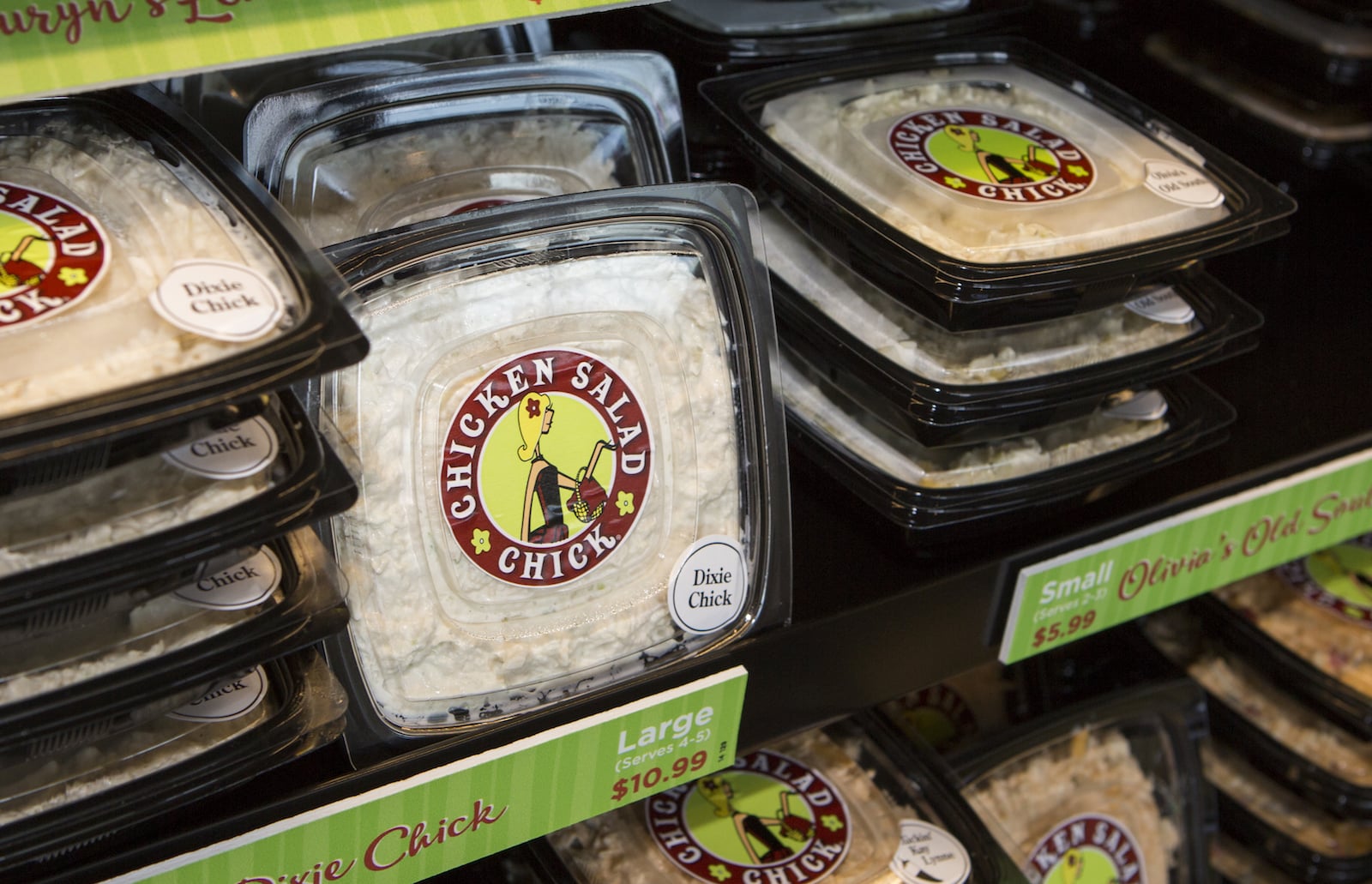Everything was going great for Chicken Salad Chick. The Alabama-based franchise opened 40 new stores last year and grew system-wide sales by 40 percent. Company leaders were targeting 400 locations by 2025.
Then came COVID-19.
“We were moving right along with a pretty aggressive plan to open 50 restaurants this year, grow the business organically, and do what we’ve been doing for the last several years,” says Scott Deviney, president and CEO of Chicken Salad Chick. “And then all of the sudden, there’s a halt.”
He says there have been 11 Chicken Salad Chick grand openings so far in 2020, bringing the store total to 155.
Some 70 percent of the system is franchised, Deviney adds, and it was those franchisees who the company turned to when pivoting in the midst of the coronavirus outbreak. He says the owners were quick to react to individual city and state regulations where necessary, but more importantly, they started communicating with each other on best practices.
“They are a great, tight-knit community,” he says. “They wanted to know what we were doing, what’s the corporate mentality, but also they were talking to each other—‘What are you doing in your community? Here’s what I’m doing and I’m seeing working.’ Many of the things that have come up have come from either trial and error or just franchise owners communicating with each other and saying, ‘I found this works really well. You should try it too.’”
Deviney says the corporate team has ramped up its communication efforts to keep the flow of information consistent across the system. He’d previously done a monthly internal podcast, but started doing them weekly to discuss all of the issues at hand due to the coronavirus. In addition, the marketing team started compiling a nightly email recapping everything it was learning from owners, including success stories from individual markets.
“It’s a collaborative effort with our team to say, ‘What are you seeing with other markets, [what’s] working? What do you know? Here’s what we’ve seen,’ and then we can pull that into one big email that goes out every night,” Deviney says. “And that’s really helped stimulate a lot of conversation and thought with our owners.”
One successful Chicken Salad Chick initiative to come from all of this communication involves the brand’s Quick Chick grab-and-go platform, which normally is a shelf in the store with pre-packaged chicken salad in 1-pound and half-pound containers and represents about 25 percent of sales. Chicken Salad Chick devised a system where owners could collect preorders on Quick Chick products and deliver them in bulk to certain cities or neighborhoods on a scheduled day. Customers simply pull up to a designated location and collect the bag with their name on it.
Deviney says this new system regularly gets hundreds of orders, noting that it’s a very natural off-premises extension of the business.
“That is a great, creative way that our owners have said, ‘We want to take the business to you as opposed to you feeling like you have to come in, especially with all the stay-at-home orders that we have,” he says. “It has been extremely successful. … I could easily see that methodology continuing on even once all the stay-at-home orders have been lifted.”
Then there are the pop-up drive thrus that several Chicken Salad Chick locations have instituted. Deviney says about 40 percent of the brand’s units have drive-thru windows, which have been hugely important to maintaining sales. Those that don’t have a drive thru, though, have been able to utilize their empty parking lots with a de facto drive-thru system.
Deviney says those stores have set up tents in the parking lot, and an employee sits outside with a tablet POS system. Cars pull up to the tent, place their order with the employee, and another team member runs their food out.
“That has helped bring in more business, because people see we’re open, and it’s been interesting to watch all the cars pull up on weekends,” he says. “Still, because of our service times being pretty quick, they’re not there long … and we just put it in [their car].”
Chicken Salad Chick has also allowed customers to help it support medical professionals. Through the “Donate a Meal” part of its “Feeding the Front Lines” program, guests placing orders can choose to donate a meal to health-care workers, which the brand then delivers to hospitals in bulk. Deviney says he could see this program continuing post-coronavirus, possibly with other communities like teachers or firefighters.
Deviney doesn’t think Chicken Salad Chick’s growth will stall too much from the COVID-19 pandemic; he thinks the brand could realistically open 30–40 units this year. Franchisees, he says, are eager to get new stores open. Plus, while the ongoing restaurant closures are nothing to be happy about, he says there will be real estate opportunities moving forward that could benefit Chicken Salad Chick, particularly as landlords find out how much potential lies in the brand.
He adds that franchising in general stands to thrive after the coronavirus. And if Chicken Salad Chick’s successful partnership with its franchisees through the crisis is any indication, it will have plenty more potential owners ready to jump onboard in the future.
“Franchising really benefits when this is done because people want to be associated with a brand that can survive,” Deviney says. “We’ve been very methodical in our growth by saying … first of all, let’s attract the right franchise owner that fits our culture, and number two, let’s grow within concentric circles so that we’re not outgrowing our footprint too early. And those two things have helped us tremendously.”
For more from Deviney on Chicken Salad Chick’s efforts, stream the podcast above.









